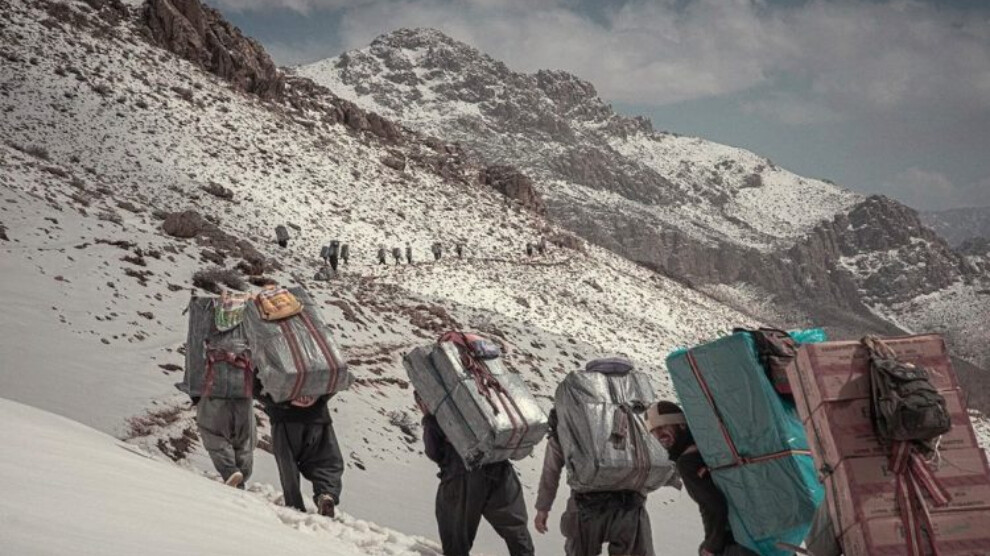Attack by Iranian forces injures 7 kolbars
Many Kurdish kolbars are killed or wounded every day as a result of attacks by the Iranian regime forces on the borders of Eastern, Southern and Northern Kurdistan.
Many Kurdish kolbars are killed or wounded every day as a result of attacks by the Iranian regime forces on the borders of Eastern, Southern and Northern Kurdistan.

According to the news in Eastern Kurdistan media, 7 Kurdish kolbars (load carriers) were injured by direct fire from the Iranian Revolutionary Guard Corps (IGRC) in the border region between East and South Kurdistan.
According to reports, the attack on a group of kolbars took place on Thursday evening near the district of Nawsoud in the province of Kermanshah, north of Pawe. Some of the kolbars suffered serious injuries and were referred to Pawe Hospital.
The injured kolbars were named as Burhan Rehîmî, Dilawer Feramerzî, Erkan, Parsa Zulfeqarî, Hadî Mensurî, Akbar Rezanhan and Akbar Feramerzî.
Kolbars and kasibkars are targeted systematically by Iranian and Turkish security forces. Each year, dozens of them are killed with no punitive measures being taken. Apart from systematic attacks, kolbars are struggling to make a living under harsh weather conditions, dangerous geographical locations and mines.
Kolber or “kolbar” is derived from the Kurdish words “kol” and “bar”. Kol means “back”, bar means “load”. Kolbars make their living by carrying goods on their backs across dangerous borders. The goods they carry include cigarettes, mobile phones, blankets, household items, tea and rarely alcoholic beverages. They have to pass through dangerous roads between South Kurdistan and East Kurdistan. The goods brought are sold at relatively high prices in commercial centres such as Tehran. However, kolbars who carry out the transportation of goods at the expense of their lives receive a very small amount of wages.
Kasibkar refers to those people who receive the goods kolbars carry to South Kurdistan and find buyers in towns.